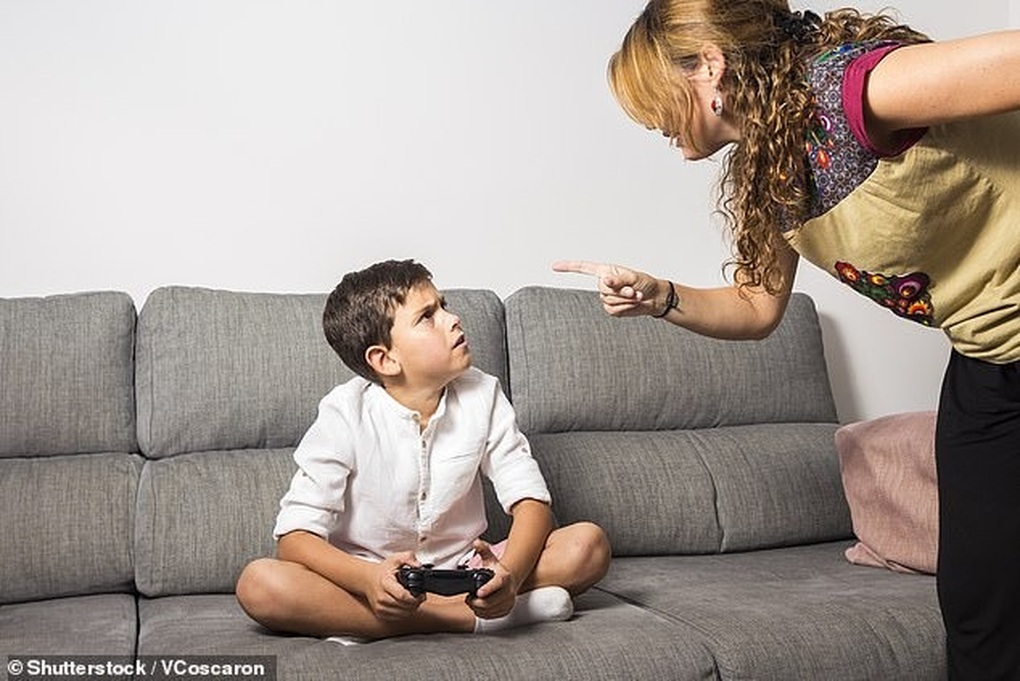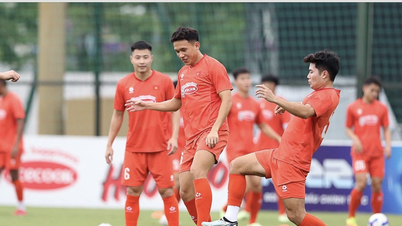Allison Ciongoli, an American therapist who helps clients deal with family issues, believes that the above punishments are both ineffective and can be harmful in the long run. Allison emphasizes that healthy discipline must contain a proactive spirit, aiming to teach children to be responsible, to control their emotions, and to correct mistakes.
While punishment is intended to stop behavior that parents do not want to see in their children, healthy discipline aims to foster self-regulation in children and reinforce and increase positive behaviors.
Many parents still often apply punitive forms of discipline such as scolding and spanking their children (Illustration: Freepik).
For children from 1 to 3 years old , according to expert Allison, parents should skillfully redirect their child's attention, distracting them with new toys or activities, to prevent misbehavior before the situation "escalates" into more tension.
Additionally, short “timeouts,” lasting just a few minutes, can help children calm down and behave better. In some cases, it’s okay to ignore problematic behavior because you know your child is just looking for attention.
If your child's actions are not dangerous, parents should "ignore" their child and show that they do not care about their problematic behavior. Over time, children will gradually understand, adjust and give up bad behavior.
For children in elementary school through adolescence , the focus ofeducation is on responsibility and the ability to communicate. As children enter school age (ages 6 to 12), discipline in the home should shift toward promoting a sense of personal responsibility.
Allison encourages parents to communicate openly and calmly at this time, allowing their children to think more deeply about their behavior.
"Clear rules need to be agreed upon by parents and children, along with consistent punishments if children violate them. These will guide children's behavior and help them develop better emotional awareness and decision-making skills," said Ms. Allison.
When children enter their teenage years, parents need to have a more respectful way of talking and behaving with their children (Illustration: Freepik).
With teenagers, it is important to respect their growing need for independence. That means parents should work with their children to establish rules and agree on punishments in advance, so that they can take the initiative in how they think and behave.
"Open and honest communication between parents and children builds trust and encourages responsibility in children. The ultimate goal of discipline is to maintain a good relationship between parents and children, creating a harmonious atmosphere in the family, because each side knows how to behave appropriately. Discipline should not be seen as a power struggle between parents and children," said Ms. Allison.
Common mistakes parents make when disciplining their children
According to expert Allison Ciongoli, many parents often make some common mistakes when applying discipline methods to their children.
First is inconsistency. Parents themselves often fail to agree with each other and with themselves on the rules of discipline to be applied in the family, leading to conflicts, or "one way, another way". As a result, parents themselves confuse children and weaken the effectiveness of applying discipline in the family.
The second is that parents focus too much on their children's negative behaviors, ignoring praising positive behaviors. If parents do not teach their children how to regulate their emotions to maintain a balanced, sober state of thinking and acting, but only ask their children not to do something, applying discipline will not create a positive effect.
Children need to learn how to regulate their own emotions and behaviors, to gradually improve their ability to control themselves, to know what to do and what not to do, instead of just passively following their parents' requests to "don't do that again".
Discipline and timely rewards will bring positive effects in training children's sense of discipline (Illustration: Leoai).
Finally , if parents feel that all efforts to apply disciplinary methods to their children are ineffective, then parents should review the balance between punishment and reward for their children.
Rewards do not have to be in kind, they can be spiritual gifts such as timely encouragement and praise, the closer to the time when the child has just done something commendable the better. This shows that parents really care and appreciate their child's efforts.
In addition to praise, parents can also encourage their children to comply with family discipline with small rewards such as extra play time or parents cooking their children's favorite dishes.
In general, punishment can quickly stop negative behavior, but reinforcing positive discipline is a constructive factor in your child's journey to adulthood. Keeping the discipline method applied to your child positive and increasing the child's initiative will help your child learn and mature faster.
Source: https://dantri.com.vn/giao-duc/chuyen-gia-chi-cach-phat-con-the-nao-cho-dung-20250503220359788.htm






























![[Photo] General Secretary To Lam receives Korean Ambassador to Vietnam](https://vphoto.vietnam.vn/thumb/1200x675/vietnam/resource/IMAGE/2025/6/6/a0765b7543784cbcbfe4755b67d43ab4)
![[Photo] President Luong Cuong works with Hung Yen and Thai Binh Provincial Party Committees on implementing Resolution of the 11th Central Conference, 13th tenure](https://vphoto.vietnam.vn/thumb/1200x675/vietnam/resource/IMAGE/2025/6/6/127b735d2761484d81dcee0d7725a25b)




























































![[OCOP REVIEW] Tu Duyen Syrup - The essence of herbs from the mountains and forests of Nhu Thanh](https://vphoto.vietnam.vn/thumb/402x226/vietnam/resource/IMAGE/2025/6/5/58ca32fce4ec44039e444fbfae7e75ec)











Comment (0)